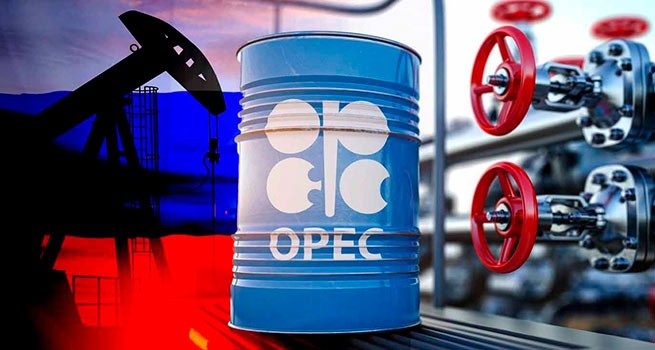In an unexpected move, Moscow decided to cut oil production, thereby putting pressure on markets that will look for oil in other countries, increasing its price.
Essentially, this is Moscow’s response to the restrictions imposed by the West on the price of Russian oil in 2022. This sanctions mechanism came into force on December 5, 2022 and provided for the introduction of a limit in the amount of 60 dollars per barrel on the price of Russian oil sold to countries that accepted it: Australia, Canada, EU, Japan, UK and USA. It also prohibited companies based in these countries from offering shipping services to Russia, such as insurance for oil sold at prices above that.
Russia found a way to circumvent sanctions by purchasing old oil tankers, with the help of which it transported oil to certain places (including to the shores of Greece, and then mixed it with oil from other countries and ended up selling oil at prices above $60 per barrel. However, India and China became the main buyers.
“To some extent, the EU and the US turned a blind eye to the fact that Russian oil was sold at above the marginal price to China or India, because this meant that more American and Middle Eastern oil was flowing into Western markets, explains the expert analyst. – But now production cuts will lead to higher oil prices for the West as India and China turn to the Middle East.”
As Russian Deputy Prime Minister Alexander Novak stated: “In order to distribute cuts evenly in line with other OPEC member countries, Russia has decided to reduce oil production.”
Earlier in March Russia announced, which in the second quarter, together with some OPEC+ countries, will reduce its own oil production and exports by an additional 471,000 barrels per day (b/d). Novak also told reporters that Russian oil companies will cut production in proportion to their share of the country's total production.
Russia plans to ease its export cuts: in April it will cut production by 350,000 barrels per day on an emergency basis, while exports will fall by 121,000 barrels per day. In May, emergency cuts will reach 400,000 bpd and exports will reach 71,000 bpd.
Russia, the world's second-largest oil exporter, cut crude and fuel exports by a total of 500,000 bpd in the first quarter, on top of its commitments to cut output along with other OPEC+ members. Russia's further reduction in oil production, rather than oil exports, was an unexpected step.
JP Morgan, which earlier this month called it a surprise change in strategy, said that if Russia goes ahead with its promised cuts, the country's oil output would fall to 9 million barrels a day by June, equivalent to Saudi Arabia's output. Currently, Russia produces about 9.5 million barrels of oil per day.
“This measure (deepening production cuts) was taken to ensure that all countries make an equal contribution (to production cuts under the OPEC+ agreement)”Novak said. “As you remember, we did not reduce (production) by volume, by percentage, like other countries. We had a reduction in exports. The moment came when, unlike exports, we reduced production.”he added.
Industry sources told Reuters on Monday that the Russian government had ordered companies to cut oil production in the second quarter to ensure it reaches its production target of 9 million barrels per day by the end of June, in line with OPEC+ commitments.
The United States has already reacted to the situation on the market, since the increase in gasoline prices before the elections became an unpleasant factor for Joe Biden. It’s not for nothing that they say that Americans don’t care about the world as long as gasoline prices don’t rise.







More Stories
A terrible tragedy in Kyrgyzstan: a truck hit 29 children at a festive event (video)
A 48-year-old Ukrainian was killed in Hungary
Paris: wild clashes between police and "black" block